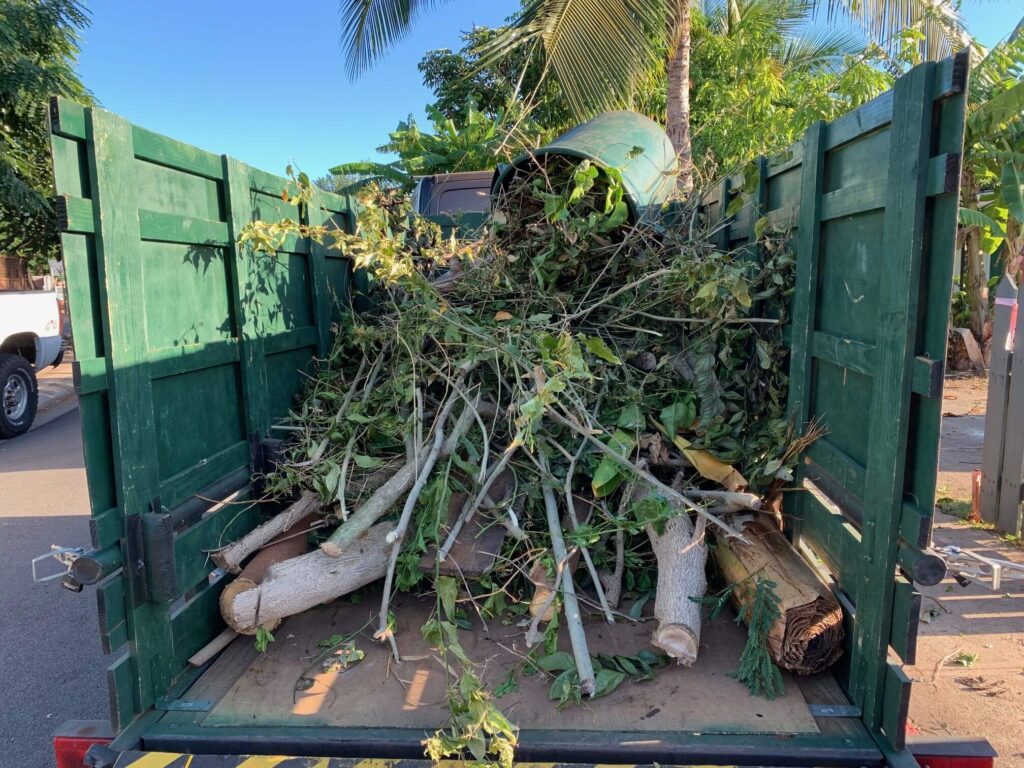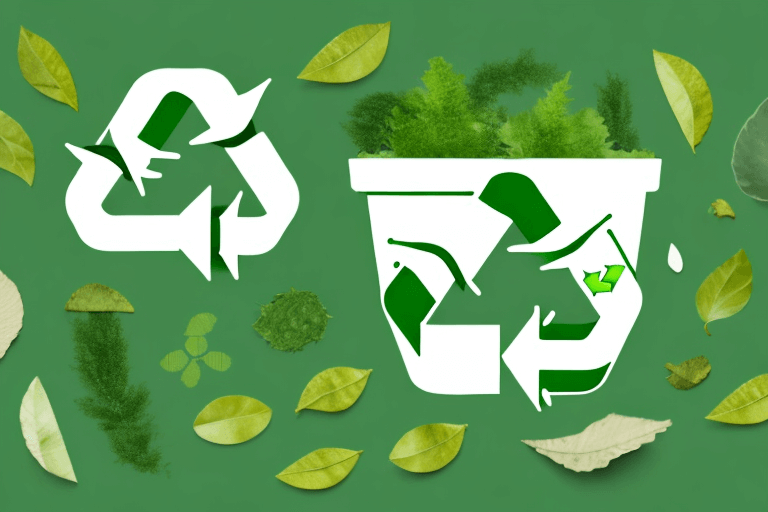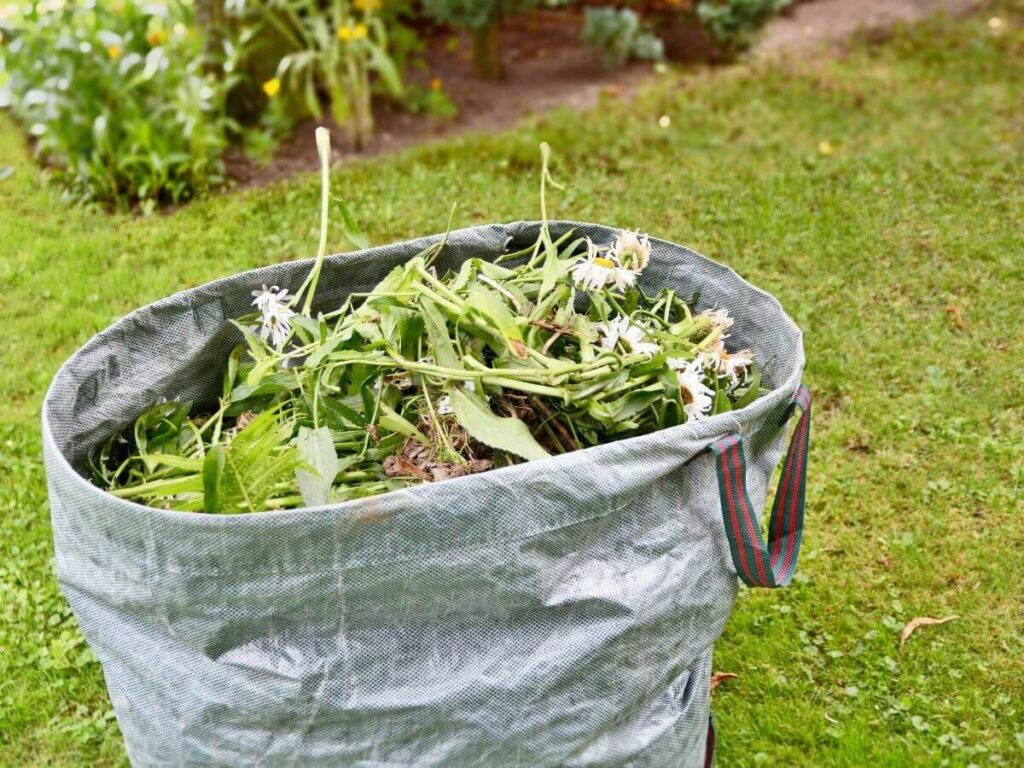In today’s world, where climate change and environmental concerns are at the forefront, finding eco-friendly solutions for everyday tasks is essential. Waste removal is no exception. Green waste removal, also known as organic waste management, offers a sustainable approach to disposing of biodegradable materials. Understanding the concept of green waste and its proper disposal is crucial for a cleaner and greener future.
Understanding Green Waste
Green waste refers to organic waste derived from plants, such as grass clippings, leaves, branches, and garden trimmings. It also includes food waste, such as fruit and vegetable scraps. This type of waste can be composted by green waste removal company and recycled to produce nutrient-rich soil amendments.
When green waste is not properly managed, it can contribute to the release of harmful greenhouse gases, such as methane, into the atmosphere. To prevent this, it is crucial to dispose of green waste in an environmentally friendly manner.
Definition and Types of Green Waste
Green waste encompasses a wide range of organic materials, including:
- Grass clippings from lawns and playing fields
- Leaves and tree trimmings
- Prunings from shrubs and bushes
- Vegetable and fruit scraps from kitchens
- Flower cuttings and dead plants
By identifying and categorizing different types of green waste, it becomes easier to implement appropriate disposal methods.
Related: The Art and Science of Professional Tree Pruning

The Importance of Proper Green Waste Disposal
Proper disposal of green waste not only helps in keeping the environment clean but also has several other benefits:
Reduces landfill waste:
Green waste makes up a significant portion of landfill waste, and by diverting it from landfills, we can extend their lifespan.
Minimizes greenhouse gas emissions:
Composting green waste instead of sending it to landfills helps reduce the emission of harmful greenhouse gases, mitigating the impacts of climate change.
Promotes sustainable practices:
By practicing proper green waste disposal, we contribute to a circular economy, where materials are reused and recycled, minimizing the need for resource extraction.
Nourishes the soil:
Composted green waste can be used as organic fertilizer, enriching the soil and promoting healthy plant growth.
Furthermore, proper green waste disposal can have positive effects on local ecosystems. When green waste is composted and returned to the soil, it enhances soil structure and fertility. This, in turn, supports the growth of beneficial microorganisms, earthworms, and other soil-dwelling organisms that play a vital role in maintaining soil health.
In addition, composting green waste can help conserve water. The organic matter in compost acts as a sponge, improving the soil’s ability to retain moisture. This reduces the need for excessive watering, especially in dry regions, and promotes water conservation.
Another advantage of proper green waste disposal is the reduction of pests and diseases. When green waste is left to decompose inappropriately, it can attract pests and become a breeding ground for harmful pathogens. By composting or recycling green waste, we can prevent the spread of diseases and minimize the need for chemical pesticides.
Moreover, the practice of proper green waste disposal can have positive economic impacts. Composting green waste creates job opportunities in the waste management and recycling sectors. It also reduces the costs associated with landfilling and waste transportation, as composting facilities are often more localized and cost-effective.
Overall, understanding and implementing proper green waste disposal methods is crucial for environmental sustainability. By composting, recycling, and reusing green waste, we can reduce waste, minimize greenhouse gas emissions, promote healthy soil, conserve water, and support local economies. It is a small but significant step towards building a more sustainable future.

The Eco-Friendly Approach to Waste Removal
When it comes to waste removal, adopting eco-friendly practices can greatly minimize the environmental impact. Green waste removal focuses on efficient and sustainable methods of managing organic materials.
Did you know that traditional waste removal methods often contribute to pollution and resource depletion? By embracing eco-friendly waste removal practices, we can make a positive impact on the planet and create a more sustainable future.
Principles of Eco-Friendly Waste Removal
The principles of eco-friendly waste removal include:
- Separating green waste from other types of waste, such as plastics or metals
- Composting green waste either at home or through municipal composting programs
- Using proper recycling channels for green waste materials, such as woodchips or compostable packaging
- Collaborating with waste removal services that prioritize eco-friendly practices
By adhering to these principles, we can significantly reduce the environmental impact of waste removal. Separating green waste from other types of waste allows for more efficient recycling and composting processes. Composting green waste not only reduces the amount of waste sent to landfills but also produces nutrient-rich soil that can be used for gardening and agriculture. Proper recycling channels ensure that green waste materials are repurposed in a responsible and sustainable manner. Collaborating with waste removal services that prioritize eco-friendly practices ensures that waste is handled and disposed of in an environmentally conscious way.
Benefits of Green Waste Removal
Embracing green waste removal offers numerous advantages:
- Conservation of resources: By recycling and composting green waste, we minimize the need for new raw materials, conserving natural resources. This reduction in resource consumption helps preserve forests, reduce water usage, and protect biodiversity.
- Reduction of pollution: Proper disposal of green waste minimizes the release of harmful pollutants into the air and water, preserving the ecosystem. When green waste decomposes in landfills, it produces methane, a potent greenhouse gas. By composting green waste instead, we can significantly reduce greenhouse gas emissions and mitigate climate change.
- Economic opportunities: Green waste management can create jobs and foster the development of sustainable industries, contributing to local economies. From composting facilities to recycling centers, eco-friendly waste removal practices can stimulate economic growth while promoting environmental stewardship.
- Community engagement: Encouraging communities to participate in green waste removal initiatives builds a sense of environmental responsibility and promotes a healthier lifestyle. By educating individuals about the importance of waste reduction and providing them with the tools and resources to participate, we can empower communities to take an active role in preserving the planet for future generations.
Imagine a world where waste is seen as a valuable resource, and every individual is actively involved in minimizing their environmental impact. By embracing the principles of eco-friendly waste removal and reaping the benefits it offers, we can create a more sustainable and harmonious future for ourselves and the planet.
Green Waste Removal Techniques
When it comes to handling green waste, there are various techniques and approaches that can be employed. These methods not only help in managing green waste effectively but also contribute to a healthier and more sustainable environment.
Composting at Home
Composting at home is a simple and effective way to manage green waste. By creating a compost pile or using a compost bin, you can transform organic materials into nutrient-rich compost. This compost can then be used to nourish your garden or potted plants, reducing the need for chemical fertilizers.
Composting is a natural process that involves the decomposition of organic matter by microorganisms, such as bacteria and fungi. These microorganisms break down the organic materials into simpler compounds, releasing nutrients that can be readily absorbed by plants.
It’s important to compost the right ingredients, such as kitchen scraps, yard waste clippings, and shredded paper. These materials provide a balanced mix of carbon and nitrogen, which are essential for the composting process. However, it’s crucial to avoid including meat, dairy products, or oily materials, as they can attract pests and hinder the composting process.
Green Waste Recycling
In addition to composting, green waste can be recycled through specialized recycling programs. Many municipalities offer green waste recycling services, where materials like leaves, grass clippings, and tree trimmings are collected and processed into mulch or compost.
Recycling green waste not only diverts it from landfills but also creates valuable resources that can be used in landscaping and gardening projects. The recycled green waste, in the form of mulch or compost, helps improve soil quality, retain moisture, and suppress weed growth.
Moreover, green waste recycling reduces the need for chemical fertilizers and pesticides, promoting a more sustainable and environmentally friendly approach to gardening and landscaping.
Hiring Eco-Friendly Waste Removal Services
For larger quantities of green waste, considering eco-friendly waste removal services is a wise choice. These services specialize in collecting, sorting, and managing organic waste in an environmentally friendly manner.
Eco-friendly waste removal companies often have dedicated facilities for composting and recycling, ensuring that green waste is properly processed without harming the environment. These facilities utilize advanced technologies and techniques to accelerate the composting process and maximize the recovery of valuable resources.
By opting for eco-friendly waste removal services, you not only save time and effort but also contribute to the reduction of greenhouse gas emissions. Proper management of green waste through these services helps minimize the release of methane, a potent greenhouse gas, which is commonly produced when organic waste decomposes in landfills.
Furthermore, eco-friendly waste removal services often provide educational resources and guidance on sustainable waste management practices, empowering individuals and communities to make informed decisions about green waste disposal.

Challenges in Green Waste Removal
While green waste removal offers many benefits, it also comes with certain challenges that need to be addressed.
Common Obstacles in Green Waste Disposal
Some common obstacles in green waste disposal include:
- Lack of awareness: Many individuals are not aware of the importance of green waste disposal and its impact on the environment.
- Inadequate infrastructure: Some regions lack the necessary infrastructure to support large-scale green waste processing and recycling.
- Contamination: Green waste can become contaminated with non-biodegradable materials, such as plastics or metals, reducing its recycling potential.
Overcoming Challenges in Eco-Friendly Waste Removal
To overcome these challenges, it is vital to focus on:
- Raising awareness through education campaigns and community outreach
- Investing in the development of efficient green waste processing facilities and recycling centers
- Implementing stricter waste sorting and recycling regulations
By addressing these challenges, we can pave the way for a more sustainable and effective green waste removal system.
Future of Green Waste Removal
The future of green waste removal holds promising advancements and innovations that further enhance sustainability.
Innovations in Green Waste Management
Researchers and entrepreneurs are constantly exploring new ways to improve green waste management:
- Bioconversion technologies: Innovative techniques are being developed to convert green waste into value-added products, such as biofuels or bioplastics.
- Internet of Things (IoT): IoT devices can monitor and optimize composting processes, ensuring optimal conditions for efficient decomposition.
- Advanced recycling methods: New technologies are emerging to extract valuable materials from green waste, enabling the production of high-quality recycled products.
The Role of Technology in Eco-Friendly Waste Removal
Technology plays a vital role in advancing eco-friendly waste removal practices:
- Smart waste management systems: IoT-enabled waste bins and sensors help track waste volumes, optimize collection routes, and detect contamination.
- Data analysis and predictive modeling: By analyzing data, waste management authorities can identify patterns and make informed decisions to improve waste removal efficiency.
- Mobile applications and platforms: Apps and platforms provide users with information on proper waste disposal, eco-friendly waste removal services, and recycling centers.
With ongoing technological advancements, the future of green waste removal looks bright, offering even more sustainable solutions.
In conclusion, eco-friendly waste removal is an integral part of creating a sustainable and cleaner environment. By understanding green waste, implementing eco-friendly practices, and overcoming challenges, we can pave the path for a greener future. Embracing composting, recycling, and utilizing eco-friendly waste removal services are steps we can all take to ensure a healthier planet for future generations. With ongoing innovations and the integration of technology, the future of green waste removal looks promising, offering innovative and sustainable solutions to combat waste and protect our environment.
More to read: Methods and Reasons Why Tree Stump Removal is Necessary
